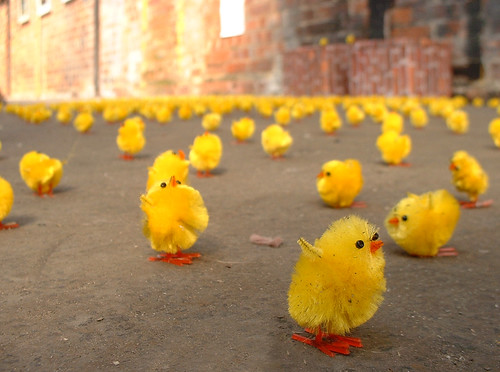 Warning: The contents of this post may be offensive. Or maybe not. Maybe it's just my political correctness. I may become 'old school': the kind of people who tried to fight consciously and unconsciously abusive labels and name-calling. But as the fight unfolded, so did a form of resistance that sought to reclaim the labels and to reinvest them with a new, empowering meaning.
Warning: The contents of this post may be offensive. Or maybe not. Maybe it's just my political correctness. I may become 'old school': the kind of people who tried to fight consciously and unconsciously abusive labels and name-calling. But as the fight unfolded, so did a form of resistance that sought to reclaim the labels and to reinvest them with a new, empowering meaning. The other day, I was looking for an unprotected wireless internet network that I could use for a mobile device. In the middle of a commercial area, the only unprotected network available was "niggerfaggot". I was taken aback: how should I read this? Could I read it in any other way than being utterly offensive? Did I even have the right to 'read' it in the first place, given that it most probably meant to be private? And what was I supposed to do about it? Report it? Connect to it? Ignore it?
I decided not to use the network. But my feelings didn't vanish: uncertainty, anger, wonder. Mostly uncertainty. What was the name's meaning? What was its role? We all name our technologies: my car's name is Sharky, mainly because it resembles a shark from the profile. Sometimes, the name is meant to be a joke. Which in itself doesn't mean the joke may not rest upon ethnic, racial or gender stereotypes.
We are meaning-making creatures: unless we make sense of things, we cannot move on. How am I to make sense of a network named "niggerfaggot"? What sets of criteria should I use to interpret it? Let's pretend for a moment that the name is reclaimed by someone who wants to challenge the mainstream hateful connotations of the words. Does this moment of personal empowerment matter in terms of the system? Would people sense the alleged irony or resistance?
The construction of difference is not something stable or unitary. It remains contextual: to understand, you need to know the context of the name. It also remains fluid over time: today's discrimination may be tomorrow's resistance. But most importantly, it remains historical: you need to understand the way in which the name was used throughout time to mark a particular type of difference.
Photo credits: Kelly Santos
















